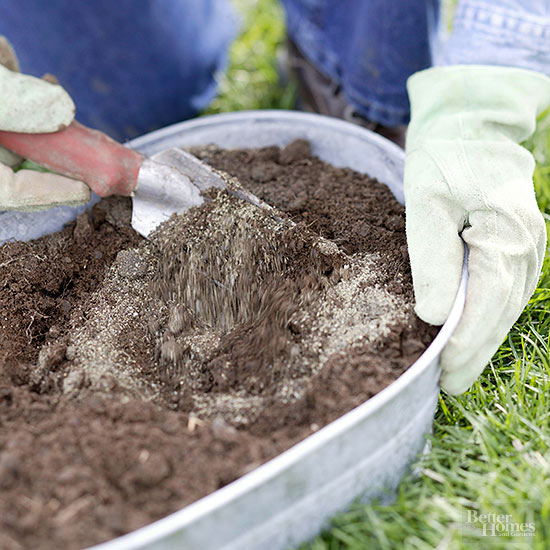






In simple terms, nitrogen promotes plant growth. It is associated with leafy, vegetative growth. It's part of every protein in the plant, so it's required for virtually every process -- from growing new leaves to defending against pests.
Nitrogen is part of the chlorophyll molecule, which gives plants their green color and is involved in creating food for the plant through photosynthesis. Lack of nitrogen shows up as general yellowing (chlorosis) of the plant. Because nitrogen can move around in the plant, older growth often yellows more than the new growth.
continue reading below
Phosphorus is involved in the metabolic processes responsible for transferring energy from one point to another in the plant. It's also critical in root development and flowering. Because phosphorus moves slowly through the soil, it's important to work it into the soil, where it's needed by the roots.
Potassium helps regulate plant metabolism and affects water pressure regulation inside and outside of plant cells. It is important for good root development. For these reasons, potassium is critical to plant stress tolerance.
Coneflowers: How to Plant, Grow, and Care for Coneflowers
Impatiens: How to Plant, Grow, and Care for Impatiens
Seed And Plant Catalogs: Tips For Ordering Plants
Repotting Stress: What To Do For Repot Stress Of Container Plants
What Is Ericaceous Compost: Information And Plants For Acidic Compost
Types Of Epiphytes – What Is An Epiphyte Plant And Adaptations Of Epiphytes
What Is Ericaceous Compost: Information And Plants For Acidic Compost
Copyright © www.100flowers.win Botanic Garden All Rights Reserved